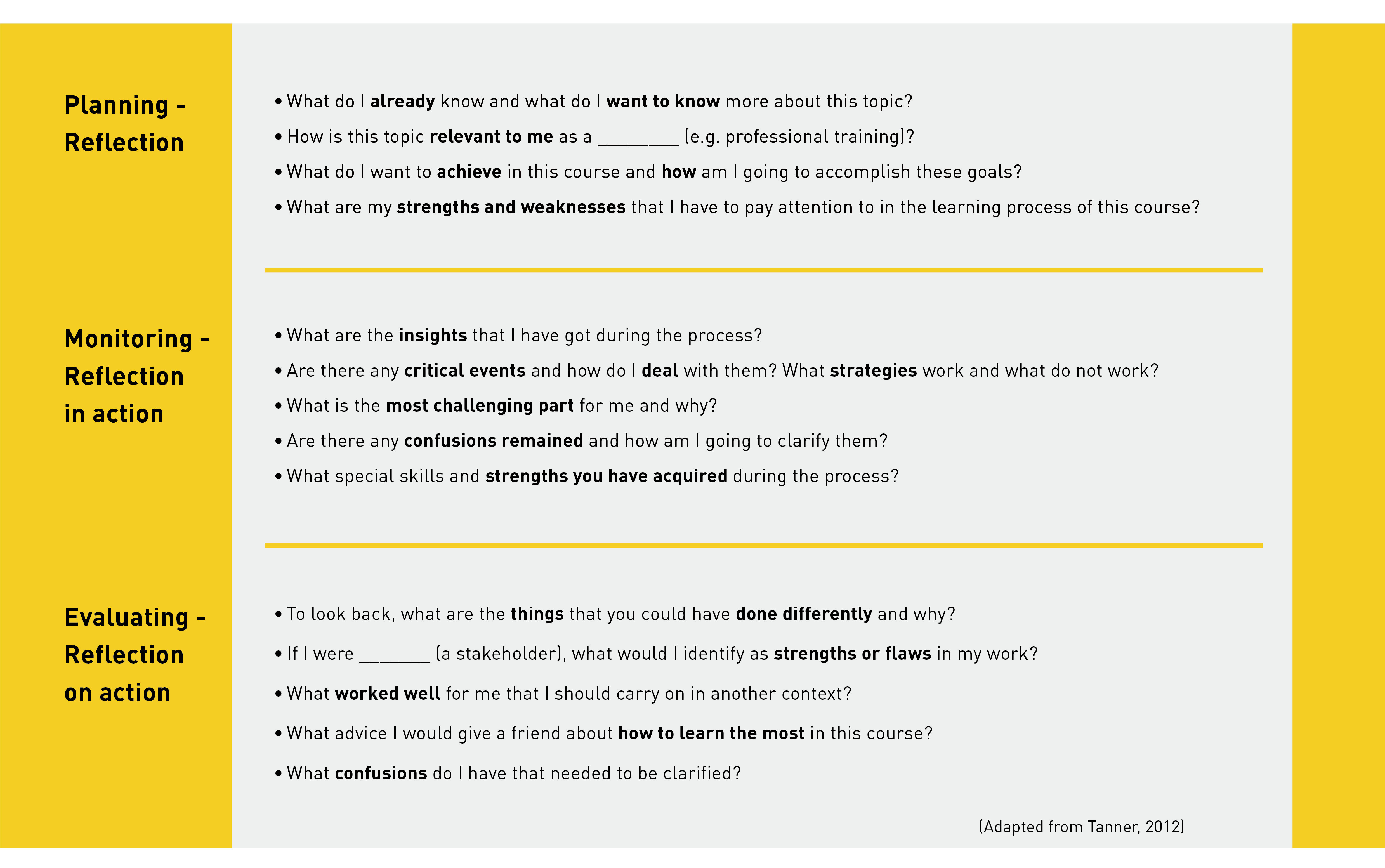As course instructors, we often put great emphasis on the mastery of content knowledge as the important learning outcome. However, in the context of EL where student-centredness is the core.
Important Consideration for Instructors
- Experiential learning occurs when carefully chosen experiences are supported by reflection, critical analysis and synthesis.
- Experiences are structured to encourage the student to take initiative, make decisions and be accountable for results.
- Throughout the experiential learning process, the students are actively engaged in posing questions, investigating, experimenting, being curious, solving problems, assuming responsibility, being creative and constructing meaning.
- Students are engaged intellectually, emotionally, socially, spiritually and/or physically with authentic learning tasks.
- Relationships are developed and nurtured: student to self, student to others and student to the world at large.
- The instructor’s primary roles include creating relevant experiences, posing problems, setting boundaries, supporting students, insuring physical and emotional safety, and facilitating the learning process.
- The design of the learning experience includes the possibility to learn from natural consequences, mistakes and successes.
(Adapted from the Association for Experiential Education)
Facilitating Reflection
Reflection is a metacognitive skill that gives meaning to our experiences. Metacognition refers to an ‘awareness or analysis of one’s own learning or thinking processes’ (Merriam-Webster, 2012) that is essential to good learning.
Levels of Reflective Behavior

Reflective Journal
Reflective journal-writing is a commonly used approach to facilitate students’ reflection-on-action. The writing process enables the student to reflect and share private thoughts. Sometimes when the EL experiences last for a prolonged period of time, for example, two months, instead of asking students to submit one single piece of journal, the instructors may consider breaking the reflective journal into a few entries or using a logbook approach where students have to reflect regularly.

Photovoice
The use of photography to give voice to reflections accommodates individual differences of different students (Henderson et al., 2003). To make use of photovoice, instructors can simply ask each student to select a few photos that capture the significant learning process in the EL programme and share in the post-trip sharing session. Another way is to ask students to work in groups and create photo journey in the post-trip final presentation.
Debriefing
Debriefing refers to the post-EL experience where students have a chance to reflect on action. It is regarded as highly important and there is a potential harm if facilitators are not aware of the emotional effects it brings (Brackenreg, 2004). The following example based on Kolb’s EL cycle (1984) demonstrate how to conduct a debriefing session:

On-site sharing/ reflection
At times, instructors may visit the students on-site during the EL programmes. Just like the photovoice approach, on-site sharing enhances a dialogic process among the students and the instructor (Moffatt et al., 2016) and it nurtures good team cohesion and rapport among all the participants.
Online discussion forum

To facilitate effective discussion and make the platform a caring and secure community, instructors may need to set some ground rules in the very beginning like the total number of responses each student has to contribute and what kind of responses students are required to submit to others’ discussion (Gutherie & McCracken, 2014). Instructors can make use of some readily available platforms (e.g. Schoology, Moodle, etc.) to generate the online forum and create different discussion corners and rules according to the programme’s needs. Some examples are illustrated on the left.
Prompts for Reflections
Instructors can also make use of the following sample prompts to promote metacognition among students during the process of EL:

